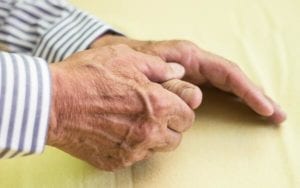Trigger finger is more common in women than men, and often is seen in people who have de Quervain’s disease or carpal tunnel syndrome. It also may be found in those who have rheumatoid arthritis, gout, diabetes or other disorders that cause connective tissue changes.
It is important to have triggering digits evaluated by a hand surgeon, as similar symptoms can be caused by other conditions, including joint sprains, Dupuytren disease or joint arthritis.
Treatment
If the triggering has been present for less than six months, a steroid injection into the flexor tendon sheath may cure the condition. Recurrences are frequent, however. A second injection may be offered if the first dose does not completely resolve the symptoms. Injections are less effective in people with diabetes, especially when there is poor control of blood glucose levels.
The condition can be permanently cured with a minor outpatient surgical procedure. Using local anesthesia, a short incision is made in the skin of the palm. The thickened sheath is then released with scissors or a scalpel, and the tendon is able to glide again without catching on the sheath. The skin is then sutured closed with stitches that typically remain for about two weeks. Splinting is not typically necessary after this surgery.
See one of our hand specialists working to relieve trigger finger.
People are encouraged to use their hands to perform most light household tasks immediately following surgery. They may be referred to a hand therapist for assistance with range of motion exercises. Most people will have recovered by 2-4 weeks, at which point they may return to their usual activities. Those who are heavy manual laborers may need up to 8 to 12 weeks before returning to work activities.
If you have any concerns regarding your hands – trigger finger, tingling, numbness, weakness, swelling, joint pain, inability to grasp small objects or other symptoms – the hand surgeons and hand specialists at Advanced Specialty Care in Danbury in Fairfield County, Connecticut can help.

